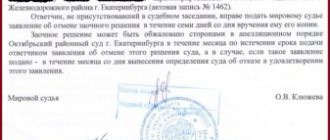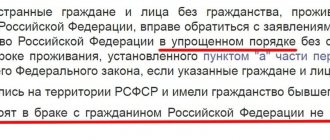Commentary to Art. 12 IC RF
1. The commented article provides for two mandatory conditions for marriage: mutual consent of the persons entering into marriage and their reaching marriageable age.
The consent of a person to enter into marriage presupposes his free, conscious expression of will to enter into an alliance with a specific person, the intention to create a family with him, and to acquire the rights and obligations of a spouse.
The importance and significance of the voluntary desire of individuals to become husband and wife is also emphasized by the Universal Declaration of Human Rights, adopted by the UN General Assembly on December 10, 1948. Thus, in Art. Article 16 of the Declaration states that marriage can only be concluded with the free and full consent of both parties to the marriage.
The legal requirement to make a conscious decision to marry a specific person is implemented in practice as follows. For example, a marriage is registered in the registry office only on the basis of a personal application submitted by those entering into marriage, after which such persons must be familiar with the procedure and conditions for concluding a marriage. Marriage is also carried out in the personal presence of those entering into marriage, since marriage by proxy or through a representative is not permitted.
If, when concluding a marriage, the condition of voluntariness of marriage was nevertheless violated, this may serve as a basis for declaring the marriage invalid (Article 27 of the Family Code and commentary thereto). In this case, both the spouse, who for any reason was not free in his decision to marry, and the prosecutor can file a corresponding claim with the court.
So, the prosecutor filed a lawsuit against M. to declare the marriage invalid and deregister. The claim was satisfied by default, since the evidence presented confirmed the fact that G. was not present at the marriage registration on January 5, 1999 in Vladikavkaz, but was at that time undergoing inpatient treatment in a Moscow hospital. The signature on behalf of G. on the application for marriage and in the marriage certificate was made by another person, which was documented.
This is interesting: What to do if your neighbors are noisy
Under such circumstances, the court came to the correct conclusion that G. did not give consent to the marriage, i.e. that the marriage was not entered into voluntarily.
The marriageable age for men and women entering into marriage is the same - 18 years. In exceptional cases, it is allowed to reduce the age of marriage to 16 years or less (Article 13 of the Family Code and commentary thereto).
2. The commented article proceeds from the fact that marriage can only be concluded between a man and a woman.
In a number of European countries (Denmark, Norway, etc.) in recent years, special laws have been adopted allowing the so-called registered partnership of persons of the same sex. However, it is established that such “registered” same-sex couples cannot co-parent a child, cannot adopt a child either together or separately, and do not have access to medical procedures for artificial insemination. Registration of a partnership can only take place if one of the parties is a citizen of the above states and lives in the country. ——————————— Korolev Yu.A. Commentary on the Family Code of the Russian Federation. M.: Justitsinform, 2003. P. 44.
The question of the constitutionality of the provisions of Art. 12 of the RF IC, which names mutual voluntary consent of a man and a woman as a condition for marriage and prevents the registration of marriage between persons of the same sex, was brought before the Constitutional Court of the Russian Federation.
Refusing to accept the appeal for consideration, the Constitutional Court of the Russian Federation indicated that both the Constitution of the Russian Federation and international legal norms proceed from the fact that one of the purposes of the family is the birth and upbringing of children. At the same time, neither the Constitution of the Russian Federation nor the international legal obligations assumed by the Russian Federation implies the state’s obligation to create conditions for the promotion, support and recognition of same-sex unions, despite the fact that the absence of such registration in itself does not in any way affect the level of recognition and guarantees in the Russian Federation of the rights and freedoms of the applicant as a person and citizen.
By virtue of Art. 23 of the International Covenant on Civil and Political Rights, the right to marry and the right to found a family is recognized specifically for men and women, and Art. 12 of the Convention for the Protection of Human Rights and Fundamental Freedoms expressly provides for the possibility of starting a family in accordance with national legislation governing the exercise of this right. ——————————— Ruling of the Constitutional Court of the Russian Federation of November 16, 2006 N 496-O.
In the Determination of December 18, 2007 N 851-О-О, the Constitutional Court additionally indicated that the Russian Federation is a secular state (Part 1 of Article 14 of the Constitution of the Russian Federation), and therefore certain religious institutions and rules permitting polygamy in marriages , a different approach to resolving this issue in a number of other states, cannot influence state policy in the field of family relations, the main principles of which are characterized, in particular, by the principle of monogamy (monogamy), based on the attitude towards marriage as a biological union of only one man and one woman, which does not allow being in several marriages at the same time.
3. In addition to the two basic conditions necessary for marriage, it is also required that there are no circumstances preventing its conclusion. If such obstacles exist, the marriage cannot be concluded.
An exhaustive list of circumstances preventing marriage is given in Art. 14 of the RF IC, according to which it is not allowed to enter into a marriage between persons, of whom at least one person is already in another registered marriage, is a close relative of the other, and has been declared incompetent by the court due to a mental disorder. Marriages between adoptive parents and adopted children are also prohibited. An exception, in particular, is the case when the court may refuse a claim to invalidate a marriage concluded with a person under marriageable age, if the interests of the minor spouse so require, as well as in the absence of his consent to invalidate the marriage (Clause 2 of Art. 29 SK and commentary thereto).
Required documents for application
1. Mutual, and most importantly, voluntary consent of persons entering into a marriage union. The consent of the newly made spouses can be expressed in two ways: • in a written personal statement in the presence of each other; • orally during marriage registration at the registry office, followed by certification with personal signatures.
You may like => Benefits are provided for pensioners of the Ministry of Internal Affairs in terms of obtaining out-of-queue places in Children's Camps, Kindergartens and Schools at the Place of Residence
For what reasons is it impossible to get married?
Citizens of Russia can marry citizens of other states, provided that registration is carried out in the civil registry office on the territory of the Russian Federation. A marriage performed according to a religious rite has no legal force.
To get married, you both need to come in person to the registry office of your choice at the appointed time. You need to have identification documents with you, and if you submitted your application online on the mos.ru portal, the originals of all documents required when submitting your application.
- husband's surname (the wife is given the husband's surname);
- wife's surname (the husband is given the wife's surname);
- both take a double surname, with the wife’s surname added to the husband’s surname and written with a hyphen. The common surname of the spouses may consist of no more than two surnames, joined by a hyphen when written.
What surname can I take?
- general passport - within 30 days;
- compulsory medical insurance policy - within 30 days;
- documents for the car - within 14 days;
- military ID - you must report a change of name to the military registration and enlistment office within 14 days, you can change your military ID later;
- international passport;
- SNILS. The SNILS number remains the same after changing the last name, first name or patronymic, but it is better to replace the insurance certificate;
- TIN. A taxpayer identification number is assigned once for life. The tax office will receive information that you have changed your full name during interdepartmental interaction. You have no obligation to change the certificate of registration with the tax authority, but you can do so if you wish;
- work book;
- Muscovite card;
- certificate for maternity capital.
Fictitiousness means a purposeful desire to sign without the desire to start a family in the first place. There are a lot of reasons that prompted newlyweds to take such a step: the most common is the acquisition of citizenship.
Nowadays, marriages are gradually giving way to cohabitation, which is becoming the norm of family life. One gets the impression that we are degrading and returning to those distant times when the pagans lived according to their barbaric laws.
Marriage age
In the chronicle of the monk Nestor there is even a mention where he indignantly describes the lifestyle of neighboring tribes, who took two or three wives for themselves. There was also an unofficial practice of cohabitation and keeping concubines. Even the famous Russian prince Vladimir did not hesitate to have several wives and dozens of concubines at the same time.
You may like => What is the fine for a knocked out tooth?
At the same time, there are no legal obstacles to the marriage of distant relatives who do not have a single common parent. For example, between cousins or second cousins. This also applies to half-brothers and sisters. Another of its clauses of the family code prohibits the marriage of an adoptive parent and an adopted child, but does not prohibit marriage between relatives of the adoptive parent and the adopted child.





